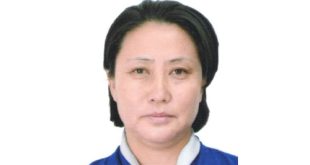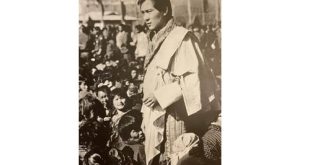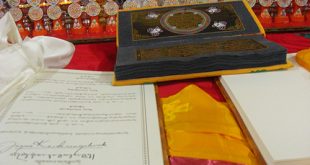Former Prime Minister, Lyonpo Khandu Wangchuk, who served in various key portfolios including Economic Affairs and Foreign Affairs, recalls how His Majesty The Fourth Druk Gyalpo laid the foundations for Bhutan’s modern health and education systems.
Under His Majesty’s reign, Bhutan saw tremendous progress in health care accessibility and education coverage, despite limited resources and challenging terrain. “We have a very caring health system,” said Lyonpo Khandu Wangchuk. “Everybody receives free medical treatment, and when patients cannot be treated in the country, they are sent outside. Even their living expenses are covered by the government. This is something that amazes people in other countries who often have to sell their property or take huge loans for the same treatment.”
Lyonpo said that such generosity reflects the compassion and foresight of the Fourth King, who prioritized the welfare of every Bhutanese. “We are truly blessed by our benevolent Monarchs,” Lyonpo said. “Because of His Majesty’s sacrifices and tireless efforts during his 34 years of reign, we are where we are today, economically, socially, and in every sense.”
Education, too, was a major area of reform under the Fourth King. His Majesty expanded access and improved quality across the nation, ensuring that even children in remote areas could attend school. “His Majesty worked at increasing and improving education, both in terms of enrollment and quality,” Lyonpo said. “His Majesty introduced school feeding programs so that poor children could get something to eat while studying. And where schools were far from villages, His Majesty built boarding facilities so that no child would be left out.”
The Fourth Druk Gyalpo also emphasized the importance of both modern and monastic education, establishing new institutes and supporting traditional learning. “His Majesty was not only looking at modern education but also strengthened monastic education by setting up many shedras,” Lyonpo said.
Another critical reform was the focus on teacher training and adult literacy. “In the early days, we were totally dependent on Indian teachers,” Lyonpo said. “So, His Majesty established our own teacher training colleges to build a capable Bhutanese teaching force. His Majesty also started adult education programs so that even those who missed school as children could learn to read and write.”
Reflecting on the challenges, Lyonpo said resource constraints, both financial and human, were among the biggest hurdles. “Education is very expensive,” Lyonpo said. “Getting enough trained teachers was difficult, especially in remote areas. Teachers had to walk for days, often to isolated places without shops or proper facilities. But despite these challenges, His Majesty expanded the number of schools across the country because His Majesty believed that the future of the nation lay in the hands of its youth,” Lyonpo added.
This strong foundation laid by His Majesty has today enabled Bhutan to become largely self-reliant in both education and health. The investments made decades ago in teacher training and medical education have borne fruit; almost all teachers and health workers across the country are now Bhutanese.
What once relied heavily on foreign expertise has gradually evolved into a system led and sustained mostly by our own professionals. This transformation, Lyonpo Khandu Wangchuk said, is a direct result of His Majesty’s foresight in building human capacity and ensuring that knowledge and skills remained rooted within the nation.
 The Bhutanese Leading the way.
The Bhutanese Leading the way.




